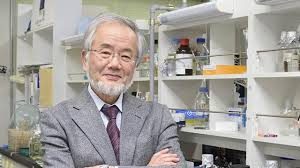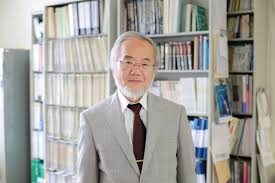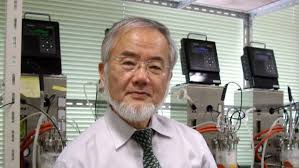Yoshinori Ohsumi, 71, from Fukuoka, Japan, has won the Nobel Prize in medicine for discoveries on how cells break down and recycle content, a garbage disposal system that scientists hope to harness in the fight against cancer, Alzheimer’s and other diseases.

Ohsumi said he never thought he would win a Nobel Prize for his work which he said involved studying yeast in a microscope day after day for decades.
Nobel committee secretary Thomas Perlmann said Ohsumi seemed surprised when he was informed he had won the Nobel Prize.
“The first thing he said was ‘ahhh.’ He was very, very pleased,” Perlmann said.



Ohsumi was awarded this year’s Nobel Prize in medicine today Oct. 3, for discoveries related to the degrading and recycling of cellular components.
Nobel judges often award discoveries made decades ago, to make sure they have stood the test of time.
Though scientists have known that autophagy exists for more than 50 years, its fundamental significance was only recognized after Ohsumi’s “paradigm-shifting research” on yeast in the 1990s, the committee said.
“Thanks to Ohsumi and others following in his footsteps, we now know that autophagy controls important physiological functions where cellular components need to be degraded and recycled,” it said.
According to the Associated Press, the announcements continue with physics on Tuesday, chemistry on Wednesday and the Nobel Peace Prize on Friday. The economics and literature awards will be announced next week.
Each prize is worth 8 million kronor ($930,000). The awards will be handed out at prize ceremonies in Stockholm and Oslo on Dec. 10, the anniversary of prize founder Alfred Nobel’s death in 1896.



Leave a Reply